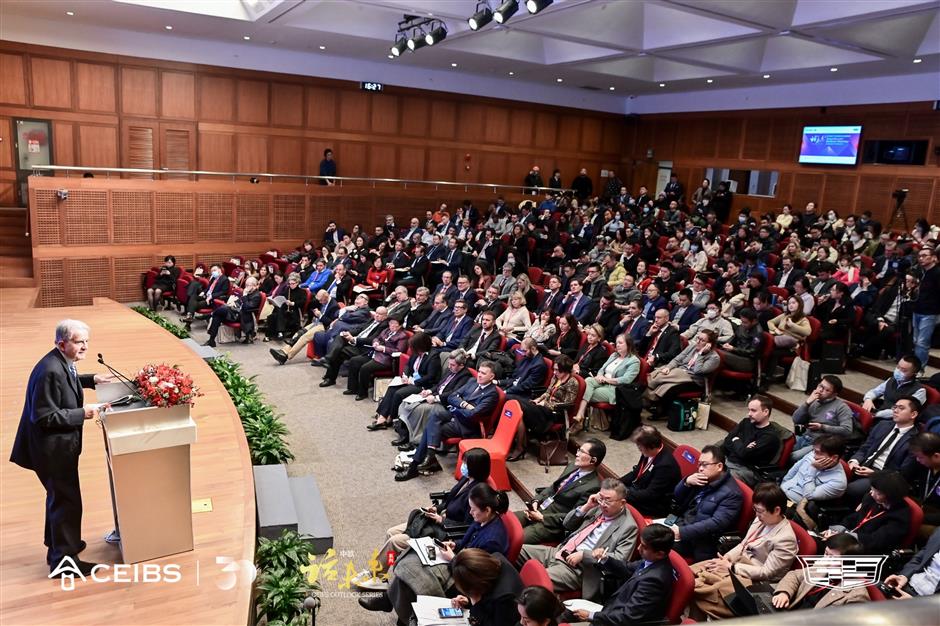Politician highlights geopolitics and multi-polar diplomacy

Former Italian Prime Minister and former president of the European Commission Romano Prodi delves into geopolitics and multi-polar diplomacy at a CEIBS visit.
Italian economist and politician Romano Prodi has stressed Sino-US and Sino-EU relations in today's bi-polar world at a recent speech in Shanghai.
Prodi twice served as Italian Prime Minister (1996–98; 2006–08) and was president of the European Commission (1999–2004).
During his visit to the China Europe International Business School (CEIBS) on Thursday, he presented a talk on "Geopolitics and Multi-polar Diplomacy: A European Perspective."
He pointed out that after decades of a uni-polar world, we now find ourselves back in a bi-polar world dominated by two competing systems.
"In today's world, there's not only the power of the US, but also other emerging economies as a result of globalization," he said.
"However, if we overemphasize ideological or value frameworks, we're less likely to reach agreements.
"International politics is like a bridge. People pass through - cars, trucks, pedestrians. You don't have to drive the same; have the same ideology or even the same values. You just have to respect the traffic rules."
Having first come to China in 1983, Prodi noted that there are vast differences between Chinese and US foreign policies.
"China accounts for 19 per cent of the world's population, with only 7 per cent of the world's arable land, which requires a large amount of renewable energy and raw materials," he said.
"It means that China's foreign policy must be continuous and long term to deal with its people, whereas American foreign policy is, in general, dependent on the President or whoever is in power."

Romano Prodi.
He also pointed out that the world should be prepared for a new era of diplomatic relations, including changes in the BRICS grouping, the rise of India, and the rise of Middle East powers.
He further suggested that with great changes in economic diplomacy and the increasing role of the government in national economies, competition now has risen to no longer be solely among companies, to being among states which, he noted, is entirely different from just 25 years ago.
In such a context the European Union, as the second largest economy in the world, is destined to play a greater role in multilateral coordination.
"A fragmented Europe needs policies and regulations to attract investment; one window of opportunity lies in the EU-China Comprehensive Agreement on Investment," he explained.
After his speech, CEIBS signed strategic cooperation agreement with Bologna Business School in Italy to enhance research and faculty exchanges.
The event was part of the CEIBS Outlook Series, which highlight the challenges and opportunities shaping today's global landscape, and the role diplomacy plays in navigating this complex terrain.
More than 300 people, including representatives of nearly 20 European Consuls General in Shanghai, attended.















